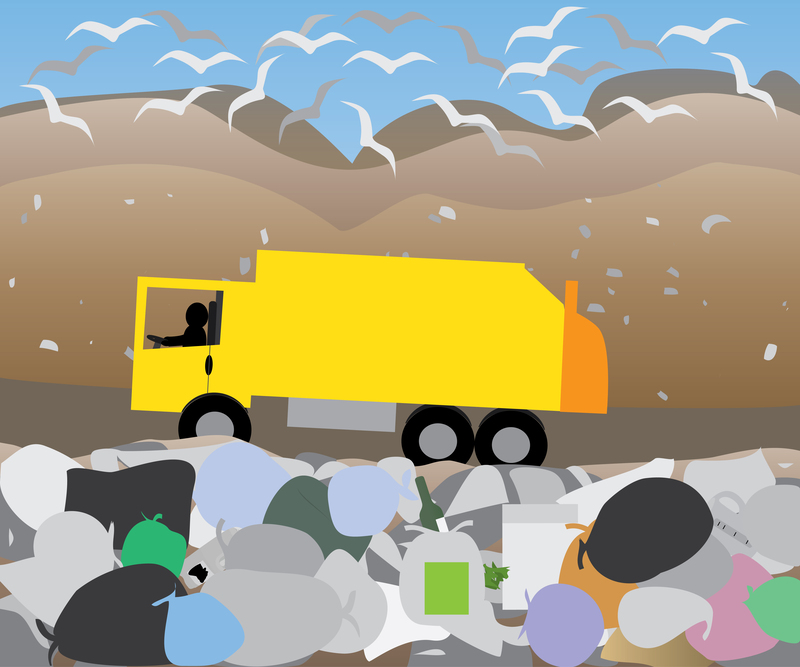Save Money and Declutter by Handling Bulky Waste Wisely
Managing bulky waste effectively can help you declutter your space, protect the environment, and save money. Discover the best strategies for handling large items responsibly, and learn how you can benefit from wise waste management habits.
What is Bulky Waste?
Bulky waste refers to large items that are difficult to dispose of through regular household waste collection. These items often include:
- Old furniture (sofas, armchairs, beds)
- Large appliances (refrigerators, washing machines, freezers)
- Mattresses and box springs
- Carpets and rugs
- Exercise equipment
- Old bicycles
- Garden equipment and machinery
Because of their size, these items require special consideration and cannot simply be left out for standard trash pickup. Handling bulky waste wisely is essential for saving money, reducing clutter, and minimizing environmental impact.

Why Should You Handle Bulky Waste Responsibly?
Proper disposal of bulky waste saves you money and benefits your community in several ways:
- Cost-Effective: Avoid fines for improper disposal and reduce waste removal fees by taking advantage of free or low-cost options.
- Environmentally Friendly: Prevent unnecessary landfill contributions by recycling, reusing, or donating items.
- Decluttering Benefits: Create more space and improve the cleanliness of your home or property.
- Community Safety: Prevent hazards associated with leaving bulky items on sidewalks or public spaces.
Wisely managing your bulky items transforms waste into opportunities!
Smart Strategies to Declutter and Handle Bulky Waste
1. Assess What Needs to Go
Begin by identifying items that are no longer useful, broken, or taking up valuable space in your home. Make a list of the bulky items you want to get rid of and categorize them:
- Usable and good condition
- Repairable with small fixes
- Non-repairable or broken
Tip: Take photos of the items to share online if you plan to sell, give away, or donate them.
2. Donate or Give Away Items
Not all bulky waste is truly "waste." Many items can find a second life. Donation is a wise way to reduce landfill waste and support the community. Consider these options:
- Charity Shops: Organizations often accept furniture and working appliances.
- Online Marketplaces: Use platforms like Facebook Marketplace, Craigslist, or Freecycle to give away or sell your large items locally.
- Community Groups: Check with churches, shelters, or schools to see if they need gently used items.
Donating doesn't just declutter; it can also be a tax-deductible contribution, saving you money.
3. Sell Your Bulky Items
If your items are in good condition, turn clutter into cash by selling them:
- Garage/Yard Sales: Host a sale and attract local buyers who can transport bulky items themselves.
- Apps and Online Venues: List items on eBay, OfferUp, or Gumtree.
- Consignment Stores: Some stores accept furniture, bikes, or exercise equipment for resale.
Smart selling helps you recoup value while responsibly managing bulk waste.
4. Repurpose or Upcycle
Some large items can be transformed for other uses:
- Furniture: Convert a dresser into a bathroom vanity or old doors into tabletops.
- Appliances: Use a broken fridge as a garden cooler or storage unit.
- Mattresses: Break down for insulation material or DIY dog beds.
Upcycling bulky items saves you money on buying new furniture and reduces waste.
5. Utilize Local Bulky Waste Collection Services
Most municipalities offer scheduled bulky waste collection days or services:
- Check Your Local Council: Visit the official website for guidelines, collection dates, and accepted items.
- Book in Advance: Some areas require appointments or permits for pickups.
- Adhere to Size Limits and Sorting Rules: Mixing regular and bulky waste may result in extra fees or missed pickups.
Using these services can help you save time and money on transportation and landfill fees.
Cost-Saving Tips When Disposing of Bulky Waste
Disposing of large waste items doesn't have to be expensive. With the right tactics, you can easily save money and keep your space organized:
- Compare Removal Services: Private junk removal companies may offer bulk discounts. Compare offers to get the best rates.
- Neighbor Collaborations: Coordinate with neighbors to pool items for a single pickup or rental dumpster.
- DIY Drop-off: Many civic amenity sites accept bulky refuse for free or at a fraction of curbside collection costs. Always check first!
- Look for Free Disposal Events: Some cities or counties host annual clean-up days or free spring cleaning initiatives.
- Avoid Illegal Dumping: Fines for dumping large waste improperly are often much higher than responsible disposal fees.
Pro tip: Always ask about fees, acceptable items, and any preparation required before disposing of large waste!
Eco-Friendly Ways to Dispose of Bulky Items
Responsible disposal is not only about decluttering and saving money on bulky disposal--it is also about considering our environment. Here are sustainable options:
- Recycle: Separate parts made of wood, metal, glass, plastics, and textiles. Many recycling centers accept disassembled bulky goods.
- Hazardous Components: Items like old refrigerators or TVs may contain chemicals. Use certified e-waste or appliance recycling facilities.
- Junk Removal with Green Policies: Choose services that prioritize donation, recycling, and minimal landfill usage.
Reducing, reusing, and recycling bulky waste preserves resources and reduces your environmental impact.
How to Prepare Bulky Items for Collection or Disposal
1. Check for Hazardous Parts
- Remove batteries from electronics.
- Drain fluids from appliances and garden equipment.
- Check for sharp edges or broken glass.
2. Disassemble When Possible
- Take apart furniture, unscrew legs, and remove cushions to save space.
- Tie cords and secure loose parts for safer transport.
3. Clean and Sanitize
- Wipe surfaces to eliminate mold, dust, and dirt, especially if donating or selling.
4. Label Clearly
- Mark items for specific disposal (i.e., electronics, metal, wood) to help with sorting at drop-off sites.
Good preparation helps speed up collection and reduces the risk of damage or injury.
Common Mistakes to Avoid When Handling Bulky Waste
- Dumping Large Items Illegally: This can result in significant fines and environmental harm.
- Ignoring Local Rules: Not following your municipality's guidelines can mean your items are not collected.
- Overestimating DIY Ability: Oversized, heavy items can be dangerous to move alone. Get help if necessary.
- Paying Unnecessary Fees: Always explore free or low-cost options before hiring premium services.
- Missing Donation Opportunities: Don't throw away items that could be reused by someone else.
Benefits of Decluttering Through Wise Bulky Waste Management
Smart bulky waste handling brings advantages that go far beyond a cleaner garage or attic:
- Mental Health Perks: Less clutter means less stress and anxiety.
- Financial Gain: Selling items or avoiding fines puts money back in your pocket.
- Environmental Protection: Keeping large items out of landfill preserves natural resources and reduces pollution.
- Safety: Decluttered spaces reduce the risk of accidents, pests, and fire hazards.
- Social Good: Donating furniture or appliances helps those in need.

Frequently Asked Questions about Bulky Waste Disposal
What items count as bulky waste?
Bulky waste usually includes furniture, large appliances, mattresses, carpets, and other oversized household items not suitable for regular bin collection.
How do I schedule a bulky waste collection?
Contact your local waste management authority or municipal office. Many offer online booking or published collection calendars.
Can I donate broken or old furniture?
Some organizations accept gently used or repairable furniture. Broken or unsafe goods should be recycled or disposed of properly.
Are there any free bulky waste disposal options?
Yes! Many towns have annual free collection days, recycling events, or community cleanup drives. Check with your local council.
What happens if I leave large waste on the curb without permission?
This is often considered illegal dumping and can result in fines or prosecution. Always follow your area's guidelines for bulk waste disposal.
Conclusion: Make Bulky Waste Management Work for You
Decluttering your home can feel overwhelming, especially when you have large and heavy items to clear out. However, with smart planning, you can save money and declutter by handling bulky waste wisely. Donate, sell, repurpose, or use your local council's services to turn your old items into something valuable--whether it's cash in your pocket, a helpful donation, or a cleaner, more livable home. And, by choosing eco-friendly disposal methods, you help conserve resources and build a healthier environment for everyone.
Remember: With the right approach, wise bulky waste management isn't just about getting rid of stuff--it's about making decisions that benefit your wallet, your community, and your planet.